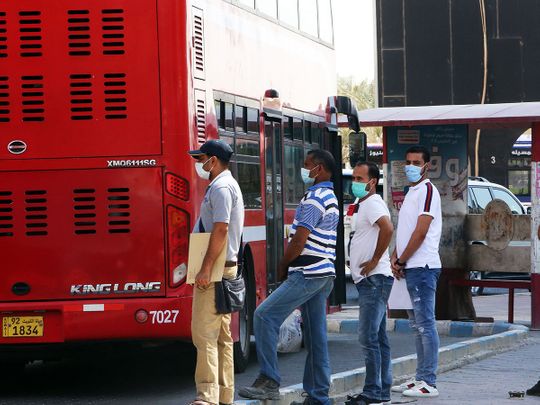
Kuwait City: A group of 105 Indians working at Shuaiba post have petitioned the Indian Embassy in Kuwait to intervene on their behalf as they have not received their salaries since June, the Times of India reported.
The Ambassador of India to Kuwait, Sibi George, spoke to Al Rai newspaper and confirmed that the Indian embassy provides all necessary services to its citizens and is constantly working with the authorities in Kuwait to address and solve issues that any Indian may face.
Without a salary for four months, the workers are unable to pay their bills and buy basic necessities. Unable to pay the rent, the workers are worried they will be evicted from their homes, as the landlord has already disconnected the elevator and water supply to their apartment.
The workers, like many others, have been waiting to return to India but have been unable to do so as they have been waiting to receive their salaries.
No work, no pay
Many people have been without money as they have been affected by the no-work-no-pay policy that most companies operate by, although the policy is deemed illegal under Kuwaiti law.
In July, around 150-200 restaurant workers, working for a well known Lebanese chain, held a protest claiming they have not been paid for the past 3 months, according to Arab Times.
Then in August, the Deputy Director of the Public Authority for Manpower, Dr. Mubarak Al Azmi, told Al Rai, they received approximately 3,000 complaints from employees, all of whom were expats, as their companies have not paid them their salaries during the COVID-19 crisis. Out of 3,000 complaints, around 2,300 expats received assistance, with the help of the Ministry of Interior and the Civil Aviation, who helped them return back to their countries.
During a session in August, the National Assembly rejected a proposal that would have allowed the private sector to reduce salaries, up to 50 per cent, due to the COVID-19 pandemic.
Amnesty programme
In April, the Ministry of Interior initiated an amnesty programme that allowed non-permit holders to leave the country with no penalty. The government also paid for their tickets.
Between April and June, 26,000 non-permit holders left Kuwait as a result of the amnesty programme.








